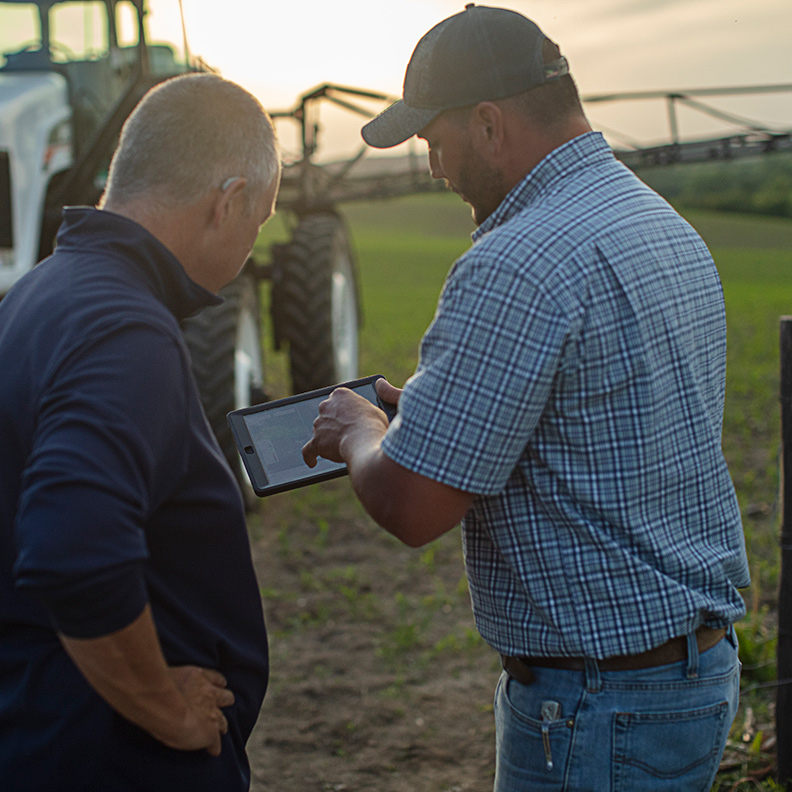As a farmer, you’re tracking important items every day, including weather patterns, crop conditions, yields, and global agricultural markets.
However, it’s also critical to have an eye on financial data. While your finances might not be as visible as what you have growing in your fields, they go a long way toward ensuring the future success of your farm. The tricky part can be knowing what specifically to track and why. Let’s take a closer look.
Painting the picture
Your ag banking partner likely asks for several pieces of information, such as balance sheets and income statements, on a regular basis. Documents like these help your banking partner analyze your operation and create an accrual-adjusted income statement in a few main areas.
Liquidity: This is the ability of a business to meet short-term financial obligations when they arise, such as making debt payments and taking care of taxes.
Solvency: Similar to liquidity, solvency looks at whether a business can meet its long-term financial commitments.
Profitability: The value of what a business produces minus the cost to produce these goods.
To assess these areas and others, banks will often look at a number of key financial calculations that help paint the picture of how your farm is doing. For example, working capital, which measures your farm’s current assets minus current liabilities, is part of the liquidity equation. A higher number means your operation has more funds available to take care of short-term needs.
Your debt-to-asset and debt-to-equity ratios point toward your farm’s solvency. In both cases, higher figures indicate a more leveraged operation, or one that relies more heavily on debt. While borrowing money is necessary for pretty much any business, operations with higher degrees of debt may have a smaller capacity to borrow additional funds.
Finally, there are several ways to assess profitability including net farm income, which looks at gross income minus expenses and depreciation. You can also look at rate stats, such as your rates of return on assets and equity, as well as your operating profit margin. In all cases, higher figures indicate a healthier operation.
Putting the data to use
Collecting financial data can have several benefits for your farm. First and foremost, much of it will be required whenever you need financing from your bank partners. Banks want to know that your operation is sound before deciding to extend credit, and these figures taken together give a holistic view of your farm’s performance.
Secondly, keeping track of this data should help you make informed, strategic decisions regarding your farm, like whether you’re in a good position to buy new equipment or land. Your bank partner should meet with you at least annually to review numbers, and these meetings will provide insight on where your operation is strong and where improvements can be made. A good partner will help you make sense of all the data and will give you honest, straightforward advice.
Finally, make sure to be consistent when it comes to tracking data. In down years, it can be tempting to avoid looking at financial figures, as you may not like what you see. Likewise, in good years, you may feel that you can sit back and relax without a data deep dive. However, it’s important to track financial data year in and year out, because this allows you to establish a baseline and observe patterns over time. Once again, a strong banking partner will be able to help you with this process on an annual basis, which will position your farm for long-term success.

